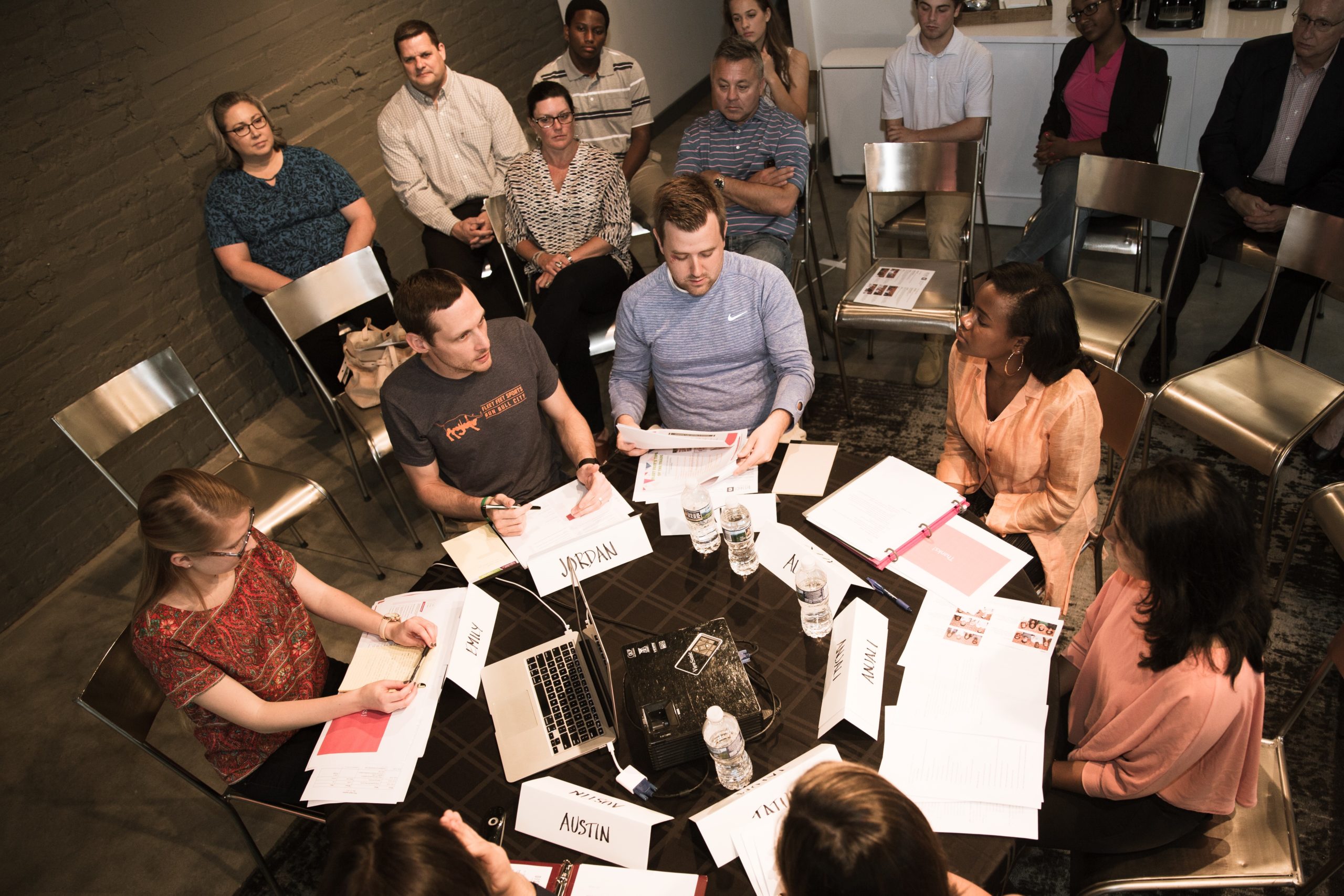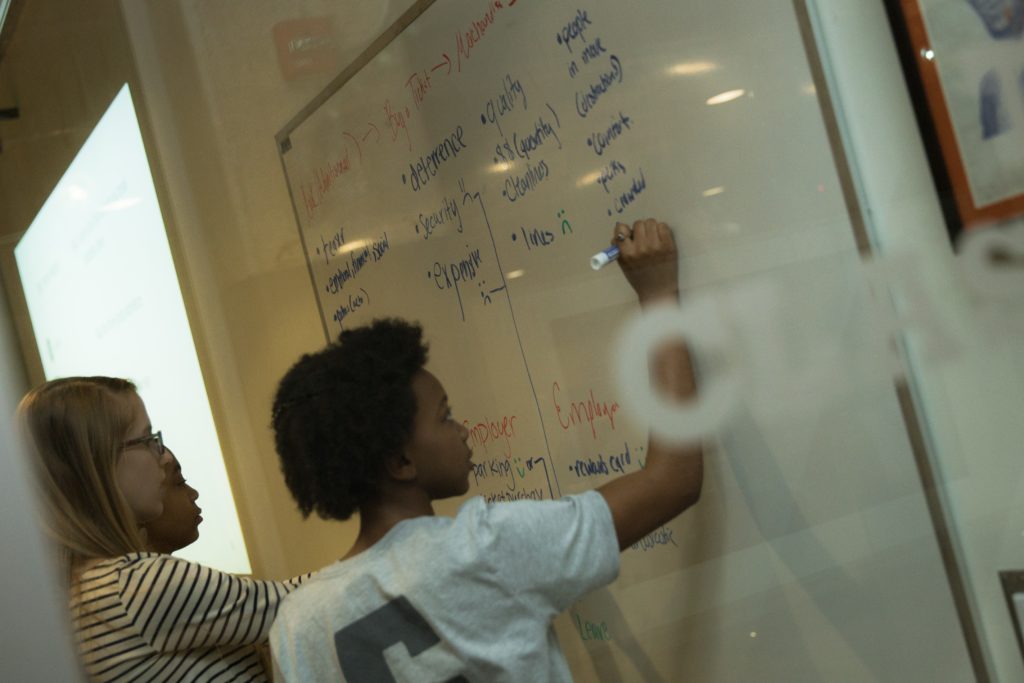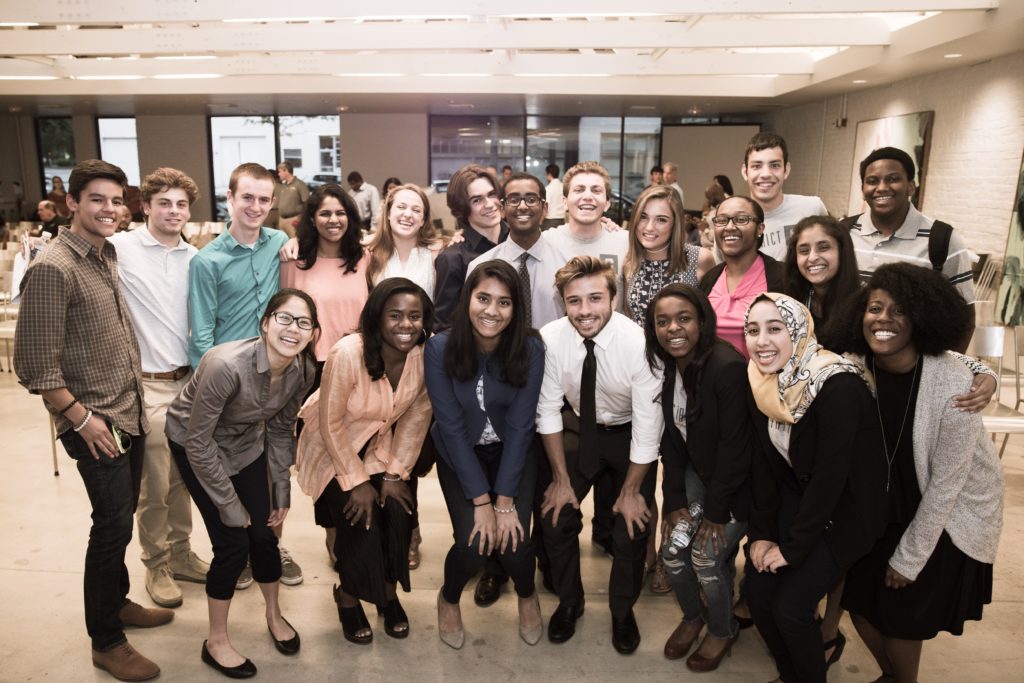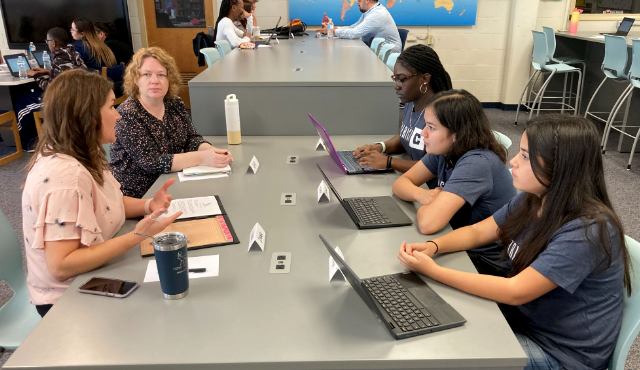Success Story in Action: District C Arms NC Students with Soft Skills to Succeed in the Work World

The NC Chamber Foundation recently met with business and education stakeholders where business leaders stressed the importance of students developing durable skills before they enter the workforce. Through the Institute for Workforce Competitiveness, we plan to spotlight success stories and solutions to pressing workforce challenges.
When it comes to preparing students for the real world, organizations like North Carolina-based District C, which is working hard to fix those challenges and giving students the real-life skills needed to succeed in the work world—thus fueling the talent pipeline for our state’s employers.
Through what’s known as District C’s Teamship experience, teams of students are given real problems impacting local businesses and have the opportunity to solve them with the support of an expert coach. They also regularly meet and directly work with those businesses they’re assisting.
District C works primarily with high schoolers across the state, but they’ve also worked with middle schoolers and college-level students.

Anne Jones, Chief Strategy Officer of District C, works with students exploring all pathways including two- and four-year colleges, trade school, the military, and others. And while students learn many soft or durable skills, teamwork and problem-solving are the main focus.
The emphasis on these skills derives from research like that gathered by the National Association of Colleges and Employers. The 2022 survey results showed that 98.5% of employers rank critical thinking as important, while 97.7% say teamwork is important. However, students also learn skills such as communication, people skills, collaboration, time management, adaptability, and creativity through the District C program.
“Regardless of their path, these students understand that they need these skills to succeed in the real world,” Jones says.
Teamship also focuses on diversity and matches team members with a diverse set of peers who bring unique skill sets, different world views, and personal passions and motivations. The organization believes that the best ideas are informed by unique perspectives.

For participating companies, Jones explains that the program is a relatively minor commitment from business partners—just five hours over five weeks. “Our promise to them is that if you bring us a real problem, you’ll get real, valuable ideas in return,” she said.
Jones, who grew up in a small town in Nebraska, talked about the importance of equitable access to the program, not just for students for businesses too. With this in mind, she stated that the Teamship model works in-person but also virtually, particularly when accessibility is an issue. For students, the program can be an actual class which is particularly ideal for students who may not be able to participate outside of school hours.
Over the past five and a half years since District C was created, students have worked with more than 200 businesses which have included JP Morgan Chase, WRAL, Novo Nordisk, William Peace University, and many others.
Of those business partners who have gone through the program, 85% of them have implemented, or plan to implement, at least portions of the solutions that District C students proposed to them.
Dana Hancock, manager of quality at Novo Nordisk, who recently worked with District C students said, “[The students had a] good understanding of our problem statement before they started asking us questions. I did not expect to be this impressed. They presented at least five or six solutions that we’re going to bring back to the leadership team and start working on implementing.”

To partner with District C, companies fill out a short application and will soon after get matched and paired with an expert coach. They then meet with the students for an initial meeting to discuss the problem statement, have regular check-ins, and ultimately participate in the final pitch event.
In another of many positive business testimonials, Matt Logan of Fleet Feet Sports, a retail apparel and accessories store located in Durham said, “Working with District C allowed us to connect with our local community in a deeper way…We came away impressed with the level of detail and sophistication displayed in their solutions. So much so that we have piloted one of the projects and are seeing an improvement in efficiency and data retrieval concerning new customer acquisitions.”
President of the NC Chamber Foundation Meredith Archie recently sat in on a District C pitch meeting being led by Franklin County Schools for a company called Novozymes, which is a global biotechnology company that has a location in Franklinton, NC.
“It was incredible to see these young minds present such valuable solutions to their clients and see teamwork in action during their presentation,” Archie said. “District C’s approach to Teamship and honing in on these soft skills, gets to the crux of a recurring theme in our NC Foundation’s Institute for Workforce Competitiveness stakeholder meetings—which is that we must be thinking more broadly about durable skills and core competencies that are highly valued by all employers. And District C is doing just that.”
If you’re a business looking to have District C students help solve a business problem you may have, visit their business page for more information and to get started.
Anne Jones of District C will be a panelist at the NC Chamber’s August 11 Education and Workforce Conference. Don’t miss your chance to sign up as registration closes Monday, August 8.